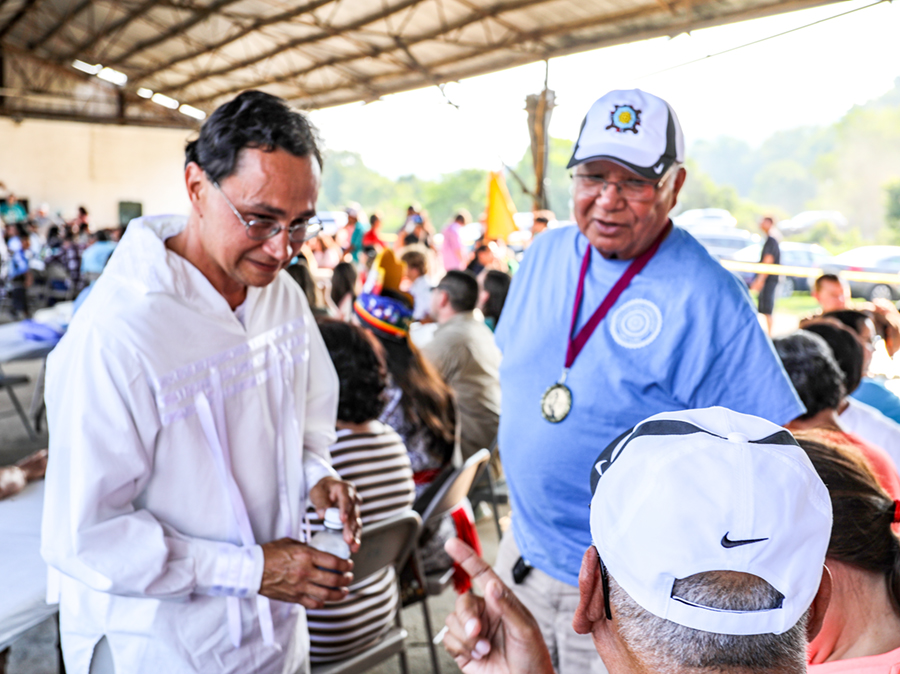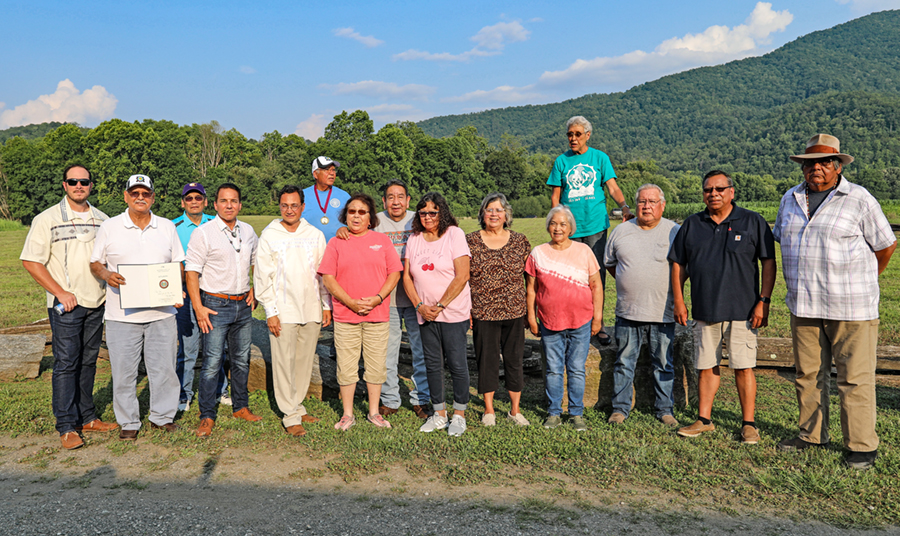

The Cherokee Nation and Eastern Band of Cherokee Indians joined as sister tribes at the historic Kituwah Mound near Cherokee, North Carolina, recently to sign an agreement to protect and preserve the Cherokee language, history and culture.
With the Cherokee language in a state of emergency, the tribes signed a memorandum of agreement to develop collaborative projects and opportunities to support and increase the Cherokee language. The tribes agreed to share resources, also working with Western Carolina University on teacher curriculum and training.
The signing was held during the Eastern Band’s “Kituwah Celebration,” when the tribes come together, break bread and celebrate the Kituwah Mound, the mother town where Cherokees began in the southeast.
“There is so much our tribes are doing, and doing well in terms of business, health care, education and housing, but that is not enough if we lose what it means to be Cherokee. If we lose our lifeways, our culture and our precious language around which we all exist, we will have lost what makes us unique,” Cherokee Nation Principal Chief Chuck Hoskin Jr. said. “The only people who can save the Cherokee language are the Cherokee people, and we are committed to that. Together, we are making sure the Cherokee language is a vital part of lives of the Cherokee people for generations to come.”
According to the MOA, the tribes will share a strategic plan and hold quarterly meetings either in person or virtually and prepare annual reports for the “Teach What You Know, Share What You Learn” initiative. There will also be a seven-member delegation who will oversee the language, history and cultural interests.
“The issue at hand is not just preservation but proliferation. With the leadership of Chief Hoskin, myself and my team here and certainly the UKB, we want to see the language once again become common and not something that is just with the older generations,” EBCI Principal Chief Richard Sneed said. “The efforts of all three tribes demonstrate that we recognize this is part of our identity, and when that is lost we’ve lost everything. So, this is extremely important.”
The Cherokee Nation estimates is has about 2,000 fluent Cherokee speakers and the Eastern Band estimates it has about 200.
“This is really important that the Eastern Band as well as the Cherokee Nation are preserving their language as well as their culture and it’s really an honor for Western Carolina University to be a part of that and be a partner with both tribes,” said Kelli R. Brown, Chancellor of Western Carolina University.
WCU, which is on EBCI land, offers a Cherokee studies minor, Cherokee language courses, and faculty also work on archeology.
Both tribes have been working to protect the language. During the COVID-19 pandemic, each put in place specific measures to ensure Cherokee speakers were given priority for vaccinations.
The Cherokee Nation’s Durbin Feeling Language Center is also under construction in Tahlequah and will house Cherokee immersion language students, the tribe’s translation department and Cherokee Language Master Apprentice Program students all under one roof. The Cherokee Nation is also developing a Cherokee speaker’s village including efficiency homes for speakers.
In 2019, the Durbin Feeling Language Preservation Act introduced by Chief Hoskin and Deputy Chief Bryan Warner provided an additional $16 million into language efforts, which was the largest language investment in Cherokee Nation history.





